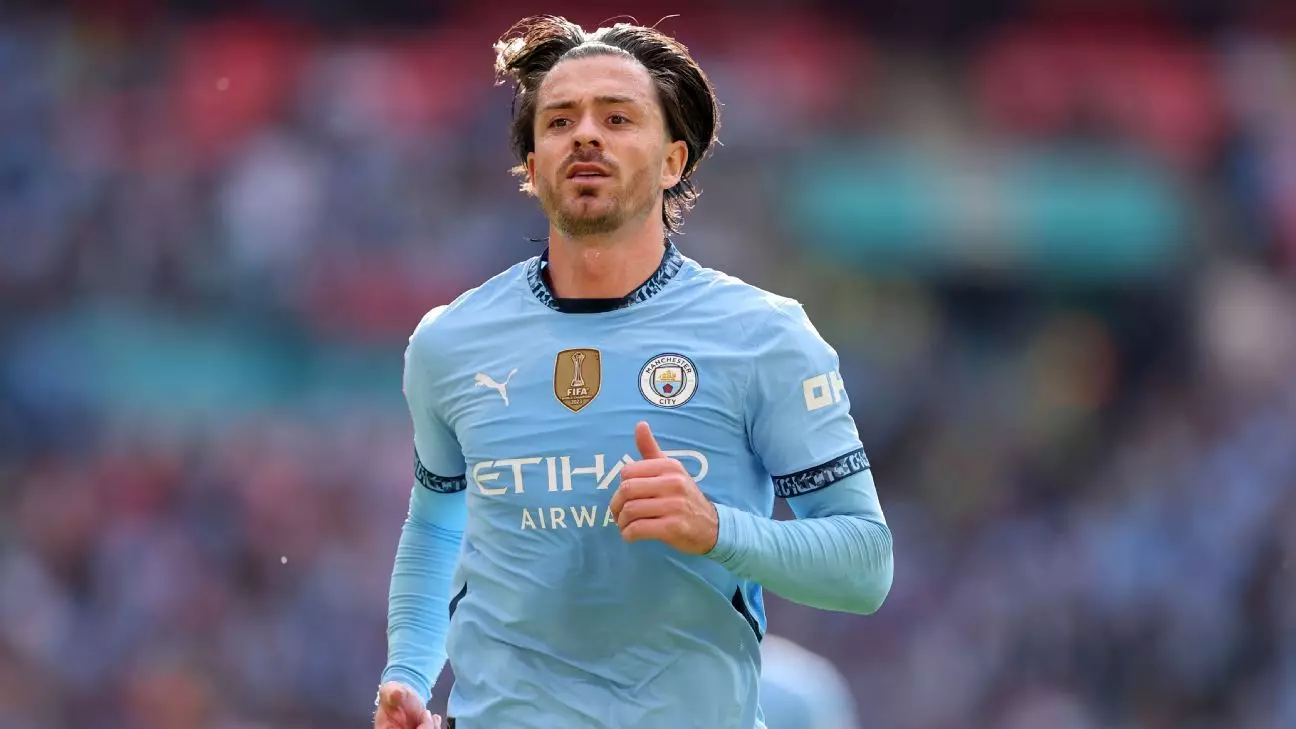Jack Grealish’s recent return to Manchester City’s training ground marks a pivotal moment in a season rife with uncertainties and unfulfilled potential. Once hailed as a promising talent, the 29-year-old now finds himself in a limbo, caught between the desire to resurrect his career and the harsh realities of modern football’s ruthless squad dynamics. His absence from the FIFA Club World Cup squad serves as a stark indicator that Pep Guardiola perceives his role within City as increasingly marginal. The fact that Grealish was omitted despite previous high-profile signing highlights the brutal competition within the squad and perhaps, the changing demands of Guardiola’s tactical approach. His islanded summer, dedicated solely to individual training, underscores an athlete fighting to stay relevant—yet it also reveals a vulnerable side: how quickly momentum can shift amid the merciless landscape of top-tier football.
Market Speculations and the Reality of a Limited Future at City
Speculative whispers link Grealish to clubs like Everton and West Ham United—familiar grounds that could offer him the playing time he’s craving. The preference for a permanent transfer suggests that City has moved on from the idea of loaning him out, viewing it more as an obstacle than an opportunity. With two years remaining on his contract, Grealish’s future hinges on how willing City are to negotiate; however, the overarching narrative seems to lean toward a potential exit, driven by the understanding that his current role is limited and unlikely to expand. Such a situation pits the player’s ambitions against the club’s strategic interests, invoking a broader debate about player value and decision-making in football’s high-stakes environment. Grealish’s apparent willingness to move reflects a pragmatic understanding of the need for regular game time—an essential ingredient for any athlete eyeing meaningful international participation, especially with the World Cup looming.
Guardiola’s Ambiguous Stance and the Impending Trials
Pep Guardiola’s remarks about Grealish’s omission not being due to behavioral issues offer a welcome respite from xenophobic or disciplinary narratives. Still, the ambiguity around his future at City suggests that tactical fit and squad planning are primary determinants of his fate. Guardiola’s openness to providing opportunities if Grealish remains beyond the transfer window hints at a complex calculus—balancing the player’s desire for action against the club’s broader strategic goals. History shows that Guardiola’s management style combines strict discipline with strategic flexibility; Grealish’s challenge is to adapt and prove he can be an asset when called upon. With the Premier League’s intensity and the international spotlight of the upcoming World Cup, Grealish’s resilience becomes a defining trait. His journey underscores a universal truth in sports: talent alone is insufficient without consistent opportunity and purposeful intent. Whether this season becomes a platform for redemption or finalizes his departure remains to be seen.

